The Latest from Boing Boing |  |
- Apple's autumn iPod harvest: hands-on with new Shuffle, Nano and iPod Touch
- The beauty and wonder of a squid's eyeball
- HOWTO make shotgun shell candles
- Print and fold envelopes lined with Google satellite maps
- Hipster dinosaurs
- Cat Parkour
- '70s biker magazine covers
- FDA may okay first genetically-modified animals for human consumption
- It's okay for cops to track suspects via GPS without a warrant, VA appeals court rules
- Odd photo of funnel cakes
- ACLU challenges USA's search and seizure of laptops, gadgets at border
- Cruise ship chaos video
- Downward facing kitteh
- Lennon-killer Mark David Chapman will remain in prison
- Makers Market (RIP)
- Pig shaped bottles
- A Morose and Downbeat Woman is My Co-Pilot
- Last chance to reserve free tix to Boing Boing's free screening of CATFISH in Los Angeles, Sept 8, 2010
- Jump through Boing Boing posts with j/k
- New York World Maker Faire 2010
- Neighbors angry about man's massive tree
- Mind-controlled Moog from Apples In Stereo
- Bahrain: blogger Ali Abdulemam arrested
- Honoring the death of a civil rights pioneer
- Kevin Rose to Digg users: "Don't hold it that way"
- Help Wanted: Youth Media International/Youth Radio
- danah boyd: Craigslist's "Adult Services" takedown actually hurts victims of abuse, sex trafficking
- Star Trek: book of gorgeous images
- More weird CB radio cards
- Fantasy waistline sizing for pants
| Apple's autumn iPod harvest: hands-on with new Shuffle, Nano and iPod Touch Posted: 07 Sep 2010 11:57 PM PDT 
All three bear improvements over earlier generations of this familiar fruit, but some of the new additions—and in some cases, what's missing—may surprise you. Following are snapshots of the new iPod Shuffle, iPod Nano, and iPod Touch, with taste-test notes. You can find them all in your local farmers markets soon, or order them now at the online Apple store.
For still snapshots, the camera is solid, but falls just a bit shy of the very high bar set by iPhone 4. The rear-facing camera on iPod Touch can shoot video at 720p, with maximum resolution of 1280x720. For still photos, maximum rez is 960x720 (720p at 4:3 ratio). Unlike iPhone 4, the Touch doesn't allow you to to tap-focus on specific spots in the photo you're about to take, because its camera is fixed-focus. Tapping allows you to tweak exposure and white balance, but that's all. And, alas, no flash. On the upside, the Touch now includes that same A4 processor that makes the iPhone 4 so zippy: as a result, speed and responsiveness are similarly delightful.
The radio tuner on the Nano works great: reception was what I'd expect from, say, my car radio, and the tuner interface mimics a conventional radio dial (mine's always set to KCRW). Photos, music, radio, podcasts, pedometer and run history for running/jogging: All this in a device small and lightweight enough to wear on your wrist, as a neck pendant, or clip on your t-shirt. It weighs less than a single ounce (.74 ounce/21.1 grams, to be precise).
Flick your fingers one way or the other to shift orientation, and various tap gestures allow you to go deeper into options, or back your way out. Took me a little getting used to before I felt like I knew my way around with the new UI, but the new display and lack of button cruft sure feel nice. You'd think something this small would be frustrating to use for touchscreen input, and two fingers at a time might sound impossible—but I didn't find that to be the case.
Below: At left, the new iPod Touch next to a third-generation iPhone. At right, the new Touch next to an iPhone 4. The Touch really is quite slim, and has a more tapered silhouette, compared to the iPhone 4's more rectilinear form.
Below: A Boing Boing Video episode (Markets of Britain, by Peter Serafinowicz and Robert Popper) on the Touch. Video playback performance is as solid on the new iPhone 4, and I can imagine spending many spare moments YouTube surfing while in transit. No surprises there: it's a powerful little multimedia device, with a number of evolutionary advances over its predecessor.
Below: FaceTime on the new iPod Touch. Others call you using your email address, instead of a phone number, since the Touch is not a phone.
 

|
| The beauty and wonder of a squid's eyeball Posted: 07 Sep 2010 05:11 PM PDT  Look at this squid's eye. Just look at it. See anything eerily familiar? Squid, along with the rest of the family Cephalopoda, haven't shared a common ancestor with us vertebrates in some 500 million years—long before the evolution of our camera-like eyes. And yet, there the cephalopods are, flagrantly swimming about with eyes that use a lens to project an image onto a retina. Call it Squid Eye for the Vertebrate Guy. So, how's it work? Convergent evolution, my friends. Convergent evolution. We happened to hit on similar solutions to the same problem of sight, even though the eyes of vertebrates and cephalopods evolved separately, in very different ways, at different times. Today, we can see that legacy in cephalopod and vertebrate fetal development. With vertebrates, the eyes grow on stalks, reaching out from the brain. In cephalopods, the eyes start as a clumping of cells on the surface of the skin and reach backwards, into the head, to make brain contact. Similar destinations. Very different road maps. This lovely illustration—featuring dissections of the head, funnel, mantle and eye of a Thaumatolampas diadema—comes from The Cephalopoda Part I: Oegopsida and Part II: Myopsida, Octopoda Atlas written in 1910 by zoologist Carl Chun following a German expedition to the Indian, Atlantic and Great Southern oceans. You can see more of Chun's detailed, passionate illustrations at the BibliOdyssey blog. Image: Some rights reserved by peacay |
| HOWTO make shotgun shell candles Posted: 07 Sep 2010 04:05 PM PDT  Here's Instructables user Sunbanks's simple HOWTO for making candles out of discarded shotgun shells, just the thing for your William S Burroughs-reviving seance! Here's Instructables user Sunbanks's simple HOWTO for making candles out of discarded shotgun shells, just the thing for your William S Burroughs-reviving seance! Shotgun Shell Candles (via Make)
|
| Print and fold envelopes lined with Google satellite maps Posted: 07 Sep 2010 04:08 PM PDT 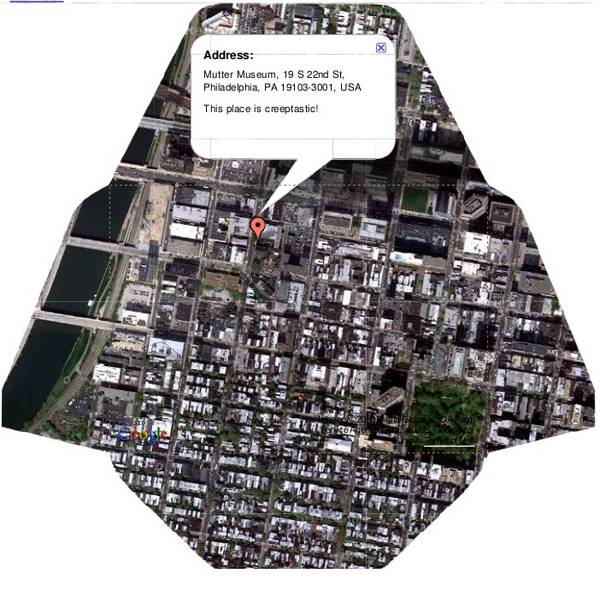 Here's a service that takes Google maps satellite views and converts them into print-and-fold envelopes you can use for your correspondence, creating a kind of handsome, 21st-century stationery. MapEnvelope (via Make) |
| Posted: 07 Sep 2010 03:59 PM PDT  I find this site, full of coloring-book images of dinosaurs altered into pretentious cool kids, incredibly charming. Thanks to the awesome Ashley Stubblefield! |
| Posted: 07 Sep 2010 03:54 PM PDT |
| Posted: 07 Sep 2010 08:54 PM PDT  An assortment of 1970s cover scans from the motorcycle magazine Easyriders. Articles included: "How to Get Rid of Your Woman," "Trouble With Twats," "Why Men Wear Beards," and then: "Positive Prison Reform Plan." Above, the cover art for an issue which contained a feature article titled "How to Select a Good Ol' Lady." Apparently, the courtship ritual involves strangling her. Then, meth! Some of the images on the aforelinked link are not work-safe. (Submitterated by MikeOliveri) |
| FDA may okay first genetically-modified animals for human consumption Posted: 07 Sep 2010 03:26 PM PDT |
| It's okay for cops to track suspects via GPS without a warrant, VA appeals court rules Posted: 07 Sep 2010 03:18 PM PDT The Virginia Court of Appeals ruled today that law enforcement should have the right to track criminal suspects with GPS, even without a warrant: "In a case that prompted warnings of Orwellian snooping by the government, the court unanimously ruled that Fairfax County Police did nothing wrong when they planted a GPS device on the bumper of a registered sex offender's work van without obtaining a warrant." (via @EFF) |
| Posted: 07 Sep 2010 03:23 PM PDT |
| ACLU challenges USA's search and seizure of laptops, gadgets at border Posted: 07 Sep 2010 04:12 PM PDT The ACLU today announced that together with the New York Civil Liberties Union (NYCLU), and the National Association of Criminal Defense Lawyers, it has filed a lawsuit "challenging the [US] government's claimed authority to search, detain, and copy electronic devices -- including laptops, cell phones, cameras, etc. -- at the country's international borders without any suspicion of wrongdoing." |
| Posted: 07 Sep 2010 02:04 PM PDT This video of a cruise ship in heavy seas is intense, and the Rod Stewart soundtrack doesn't make it any less so. I bet it was quite scary for the folks onboard. (Thanks, Mathias Crawford, via Dangerous Minds!) |
| Posted: 07 Sep 2010 01:56 PM PDT 猫が土下座しながら寝てた, via The Frisky. |
| Lennon-killer Mark David Chapman will remain in prison Posted: 07 Sep 2010 01:43 PM PDT  Mark David Chapman, who murdered John Lennon in 1980, has again been denied parole. From CNN: In their written comments, the commissioners told Chapman they had concerns "about the disregard you displayed for the norms of our society and the sanctity of human life." After considering the action he took in 1980, they concluded Chapman's "discretionary release remains inappropriate at this time and incompatible with the welfare of the community.""John Lennon's killer is denied parole for the 6th time"
|
| Posted: 07 Sep 2010 01:36 PM PDT The beta test period for Makers Market has come to a close and we're bummed to announce that the doors are closing on the Market and our Boing Boing Bazaar. There is some terrific stuff in the BB Bazaar and we encourage you to reach out to the sellers directly and seek out their merchandise via other channels. Thank you to all the makers, the buyers, and our great partners/friends at MAKE! We learned a lot from this experiment and are currently exploring some new ways to create a curated catalog of wonderful things. More on that soon. The official message from our partners at MAKE follows.
|
| Posted: 07 Sep 2010 01:54 PM PDT |
| A Morose and Downbeat Woman is My Co-Pilot Posted: 07 Sep 2010 01:21 PM PDT  For the first century of the automobile's use, passengers were always people or pets. However, in the past decades, automobiles have begun to carry a new "passenger": a voice-based computer agent used to give directions, warn of problems (e.g., "your oil is low"), control entertainment (e.g., "you are now listening to KQED"), and make suggestions (e.g., "the closest Starbucks is 2.3 miles away"). As a social scientist who studies human-technology interaction, I've guided my design of and research on these "virtual passengers" by studying real passengers. By leveraging those attributes that make passengers likeable and non-distracting, one can then make GPS systems, voice-activated controls, and other voices in the car more desirable and effective. For example, we've found that people adjust their way of speaking to match the situation in the car: when the driving is dangerous passengers unconsciously shorten and simplify their sentences. There are now GPS systems that do the same. Similarly, when BMW found that German drivers wouldn't take directions from a female voice and had to have a product recall, they found a voice that better matched their brand: a male "co-pilot." For the first century of the automobile's use, passengers were always people or pets. However, in the past decades, automobiles have begun to carry a new "passenger": a voice-based computer agent used to give directions, warn of problems (e.g., "your oil is low"), control entertainment (e.g., "you are now listening to KQED"), and make suggestions (e.g., "the closest Starbucks is 2.3 miles away"). As a social scientist who studies human-technology interaction, I've guided my design of and research on these "virtual passengers" by studying real passengers. By leveraging those attributes that make passengers likeable and non-distracting, one can then make GPS systems, voice-activated controls, and other voices in the car more desirable and effective. For example, we've found that people adjust their way of speaking to match the situation in the car: when the driving is dangerous passengers unconsciously shorten and simplify their sentences. There are now GPS systems that do the same. Similarly, when BMW found that German drivers wouldn't take directions from a female voice and had to have a product recall, they found a voice that better matched their brand: a male "co-pilot." One of the most important issues to address in car interfaces is how to deal with upset drivers, as negative feelings are among the primary causes of accidents on the highways. Unfortunately, there is little known about effective strategies that passengers can use when dealing with an upset driver. In particular, should a passenger -- real or virtual -- in a car with an upset driver sound happy and upbeat or depressed and morose? As an experimentalist, I decided to obtain upset drivers, combine them with either a happy or upset passenger, and see what happened. While one might want to do the study with real passengers, it's often much more effective to study people's reactions to interactive media directly. My lab and I had participants use a driving simulator with a gas pedal, brake pedal, and force-feedback steering wheel. Along for the ride was a "virtual passenger," a recorded voice played by the car. The voice was of a female actress and made light conversation with the participant throughout the drive. The passenger's remarks encouraged the driver to talk back. For example: "How do you think that the car is performing?", "Do you generally like to drive at, below, or above the speed limit?", and "Don't you think these lanes are a little too narrow?" While the voice said the same 36 remarks to all the participants, its tone of voice was clearly happy and upbeat for some participants, and clearly morose and downbeat for others. The sad voice sounds almost laughable to most people, and it would seem obvious that these upset drivers would prefer and benefit from the happy voice. To check this, using the simulator and coordinated technologies, we recorded the number of accidents the participant had and how much attention the participant paid to the drive. We also measured people's social engagement with the virtual passenger by recording how much the participant spoke with the agent. After the driving was over, we asked participants a number of questions about their feelings about the car and their driving experience via an online questionnaire. What happened to these upset drivers? Did the happy passenger help cheer up the drivers? The simulator results suggest an emphatic "no." The happy voice in fact worsened upset participants' driving: upset drivers hearing the happy voice had approximately twice as many accidents on average as the upset drivers hearing the depressed voice. Upset drivers with the happy voice were also less attentive to the road than those with the voice that was clearly flat. The questionnaire results also suggest that upset drivers were happier with a subdued, rather than happy, virtual passenger. Specifically, upset drivers enjoyed driving more, liked the voice more, and thought that the car was of a higher quality when the virtual passenger was upset. In addition, even though you might think that an upset passenger and an upset driver would avoid conversation with each other, upset drivers spoke much more with the depressed "passenger" than they did with the happy one. Why didn't the upset drivers benefit from the happy voice? When people try to process and pay attention to emotions that differ from their own, it takes a great deal of cognitive effort. As a result, the drivers were distracted, uncomfortable, and performed worse. Furthermore, when the virtual passenger continued to cling to her initial emotion, drivers felt the lack of empathy, even if it was only a technology that was hurtful. While it is satisfying to inform the design of the car's interface to make drivers safer and more enjoyable, it turns out that there was another benefit. In over one hundred experiments, research emerging from my lab has shown that social behaviors and responses appear in full force when people interact with technology. That is, people treat computers as if they were real people. As a result, just as we can use the most successful social behaviors to inform technology design, we can use studies with computers and other technologies to derive rules that will teach people how to win friends and influence people. Indeed, in my new book, The Man Who Lied to His Laptop: What Machines Teach Us about Human Relationships, I describe almost one hundred rules for social behavior that can be derived from experimental studies of how people use technology and that can make people more likeable, effective, and persuasive. The current study gives us two principles to guide interactions with people (as well as technology): telling upset people to "look at the bright side of life" can be off-putting, and "misery loves miserable company."
Buy The Man Who Lied to His Laptop: What Machines Teach Us About Human Relationships on Amazon |
| Posted: 07 Sep 2010 12:43 PM PDT  There's still time to reserve a free ticket to see Boing Boing's screening of the much-talked-about documentary CATFISH at the Landmark Theatre on Pico blvd. in Los Angeles. There's still time to reserve a free ticket to see Boing Boing's screening of the much-talked-about documentary CATFISH at the Landmark Theatre on Pico blvd. in Los Angeles. Exclusive free BB event in Los Angeles: screening of Catfish documentary |
| Jump through Boing Boing posts with j/k Posted: 07 Sep 2010 11:34 AM PDT |
| New York World Maker Faire 2010 Posted: 07 Sep 2010 11:22 AM PDT I hope to see you at World Maker Faire 2010 in New York on Sept. 25th and 26th! A family fun festival to MAKE, create, learn, invent, CRAFT, recycle, build, think, play & be inspired by celebrating arts, crafts, engineering, food, music, science and technologyNew York World Maker Faire 2010 |
| Neighbors angry about man's massive tree Posted: 07 Sep 2010 10:52 AM PDT  Neighbors want David Alvand of Plymouth, Devon, England to cut the lovely leyland cypress tree in his yard. In 2003, Alvand almost went to jail over a 12-foot concrete privacy wall that he ultimately was forced to remove. From The Guardian: (Neighbors) have launched a formal complaint under antisocial behaviour legislation to force him to cut back the vast leyland cypress trees completely filling the front garden."Giant leylandii in suburban front garden incense neighbours" (via Fortean Times) |
| Mind-controlled Moog from Apples In Stereo Posted: 07 Sep 2010 10:34 AM PDT Robert Schneider of excellent psych-rock group Apples In Stereo hacked a Mattel MindFlex game, which measures brain waves, into a controller for his Moog analog synthesizer. He calls his mind-control interface The Teletron. If you'd like to make your own, here are Schneider's video instructions, "Teletron for the Populace." |
| Bahrain: blogger Ali Abdulemam arrested Posted: 07 Sep 2010 10:20 AM PDT  Ali Abdulemam, a blogger in Bahrain and contributor to Global Voices, was arrested this weekend by Bahraini authorities on charges that he spread "false news" on BahrainOnline.org, a top pro-democracy online media outlet in Bahrain. Ali Abdulemam, a blogger in Bahrain and contributor to Global Voices, was arrested this weekend by Bahraini authorities on charges that he spread "false news" on BahrainOnline.org, a top pro-democracy online media outlet in Bahrain. The arrest takes place during "the worst sectarian crackdown by the government in years, and accusations of a purported 'terror network' involving several political and human rights activists." Mohamed el Gohary at Global Voices writes: The BahrainOnline portal is censored in Bahrain. He sent an email earlier today mentioning that he got a call from the Bahraini national security just before his arrest, then arrested him and alleged that he was trying to flee.Read more about his case at Global Voices. Here's the news announced on Bahrain's official state news agency. |
| Honoring the death of a civil rights pioneer Posted: 07 Sep 2010 10:01 AM PDT  Fifty-three years ago, Jefferson Thomas joined eight other black teenagers in integrating Little Rock Central High School in Little Rock Arkansas. The reaction against them was immediate, pervasive and frequently violent. White mobs spit and screamed at Thomas and the other Little Rock 9 when they showed up for school. The state's governor tried to use the Arkansas National Guard to keep the black students out, saying that following the federal mandate would only result in social disruption and that integration would have to wait until some unspecified time. And Thomas' father was laid off, probably as punishment for his son's decision. Through it all, friends say, Thomas kept his sense of humor and used it to boost the spirits of the other Little Rock 9. He took his inspiration from a hymn, "Lord, Don't Move My Mountain, Just Give Me the Strength to Climb."
Thomas died last Sunday, from pancreatic cancer, at the age of 67. He is the first of the Little Rock 9 to pass away. Little Rock Central High School has since become a National Historic Site. The photo of Jefferson Thomas—along with classmates Minnijean Brown and Thelma Mothershed—is from their online archives, where you can also listen to oral history recordings, read about the lives of the Little Rock 9, and get a deeper understanding of the events surrounding public school integration. Personally, I like this shot because it shows Thomas and his classmates in a candid moment, looking like normal teenagers, rather than people from a history textbook. That reminder, that historic figures are people, is important to keeping their experiences—and the lessons we ought to be learning from those experiences—fresh and real. History isn't just facts for a quiz. |
| Kevin Rose to Digg users: "Don't hold it that way" Posted: 07 Sep 2010 10:04 AM PDT Responding to an unexpected flood of user complaints about the recently-relaunched Digg, founder Kevin Rose's approach may remind some of a certain Cupertino CEO's terse emails circa "antennagate." Next: will cranky users demand free Digg bumpers? Watch video, via TC |
| Help Wanted: Youth Media International/Youth Radio Posted: 07 Sep 2010 11:38 AM PDT  I've posted before about my friends at Youth Media International/Youth Radio, an Oakland-based non-profit that helps underserved young people learn the tools of media creation. You may have heard their excellent contributions to NPR or read their journalism at the Huffington Post and other places. Right now, Youth Radio has two very rare job openings that are killer opportunities for the right people. I've posted before about my friends at Youth Media International/Youth Radio, an Oakland-based non-profit that helps underserved young people learn the tools of media creation. You may have heard their excellent contributions to NPR or read their journalism at the Huffington Post and other places. Right now, Youth Radio has two very rare job openings that are killer opportunities for the right people. First, they're looking for a "Managing Editor" to helm a new online news service and media property for young people. Rob, Dean, and I have all been consulting on this at varying levels, and it's a really groundbreaking, worthwhile project. Managing Editor job description Also, the organization recently won a MacArthur Foundation competition to launch a "Mobile Action Lab" to build six online/mobile apps "that serve real needs in youth communities." Are you a developer who can run the lab and collaborate with young people to make the apps? Developer-In-Residence, Mobile Action Lab job description
|
| danah boyd: Craigslist's "Adult Services" takedown actually hurts victims of abuse, sex trafficking Posted: 07 Sep 2010 09:37 AM PDT In a Huffington Post op-ed, danah boyd argues that pressure to censor Craigslist, which recently resulted in the company's removal of its "adult services" section for users in the United States, actually "helps pimps, child traffickers and other abusive scumbags." Read the entire essay here.
|
| Star Trek: book of gorgeous images Posted: 07 Sep 2010 09:19 AM PDT  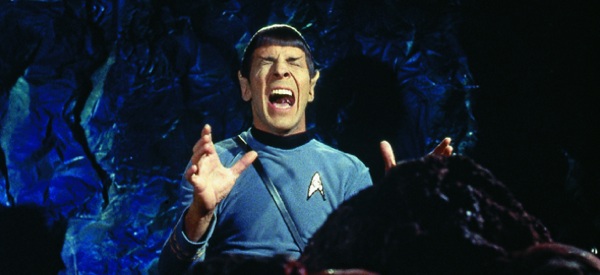  Star Trek: The Original Series 365 is a lovely new hardcover book ripe with full-color images/illustrations (365 of 'em!), original series episode summaries, and interviews. For more samples, check out the post at Wired.com and the book page at Abrams. The book is just $20 from Amazon. Star Trek: The Original Series 365 Star Trek: The Original Series 365 is a lovely new hardcover book ripe with full-color images/illustrations (365 of 'em!), original series episode summaries, and interviews. For more samples, check out the post at Wired.com and the book page at Abrams. The book is just $20 from Amazon. Star Trek: The Original Series 365 |
| Posted: 07 Sep 2010 09:09 AM PDT  If you enjoyed the CB QSL cards posted on Mitch O'Connell's blog, myQSL.org has 8,372 more. Hurray for weird America! I've posted a few choice examples after the jump.
|
| Fantasy waistline sizing for pants Posted: 07 Sep 2010 09:04 AM PDT  Abram Sauer of Esquire measured the waistline of several different brands of "36-inch waist" pants and found the actual waistlines to be larger, and in some cases much larger, than advertised. |
| You are subscribed to email updates from Boing Boing To stop receiving these emails, you may unsubscribe now. | Email delivery powered by Google |
| Google Inc., 20 West Kinzie, Chicago IL USA 60610 | |

 As predicted last week in
As predicted last week in 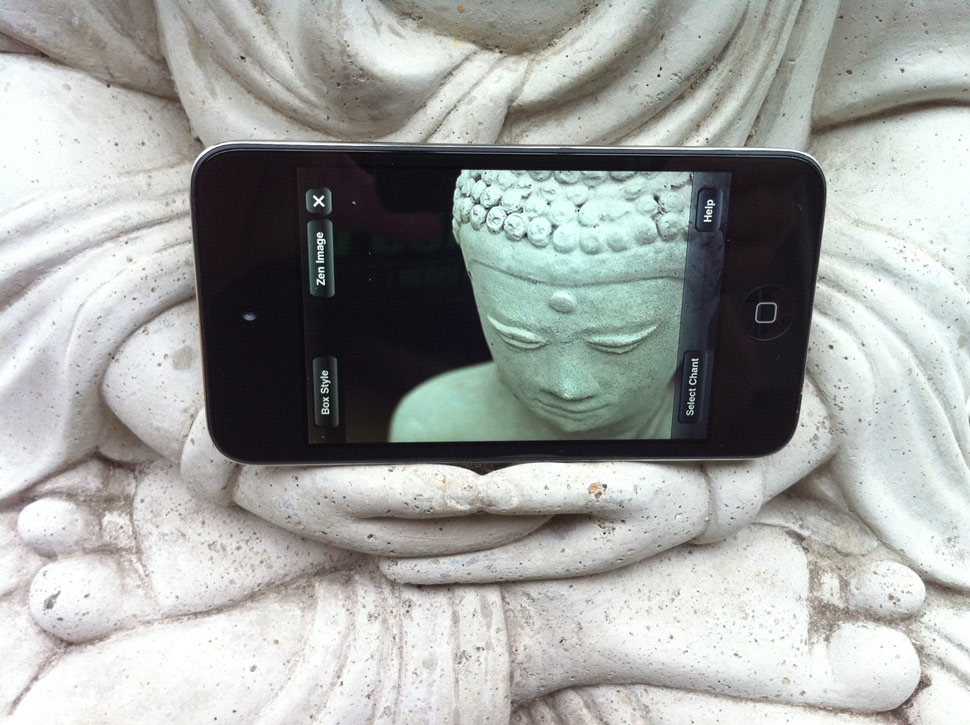



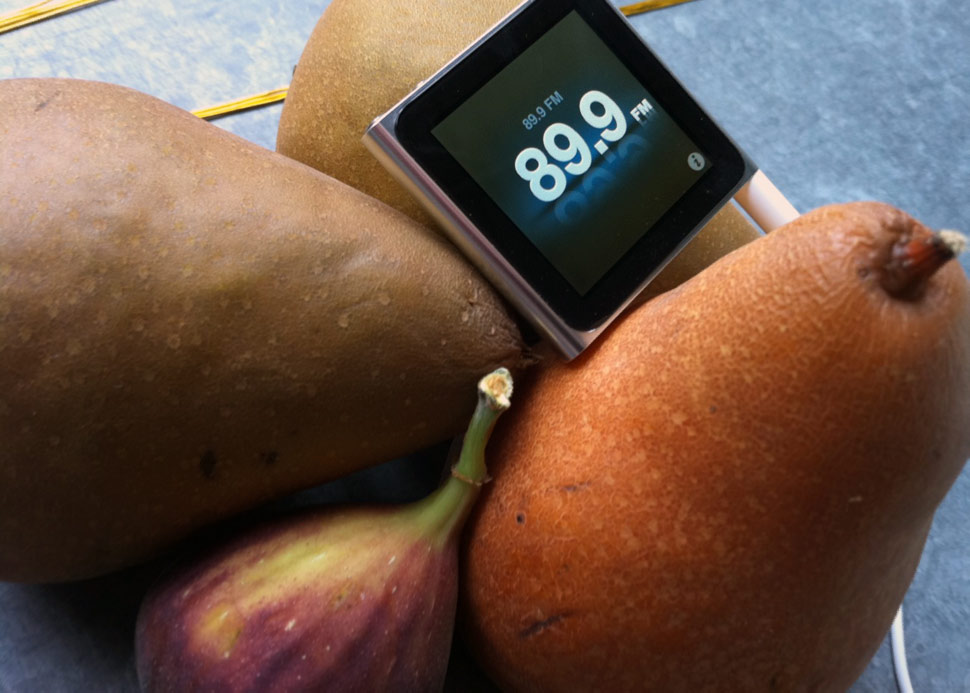

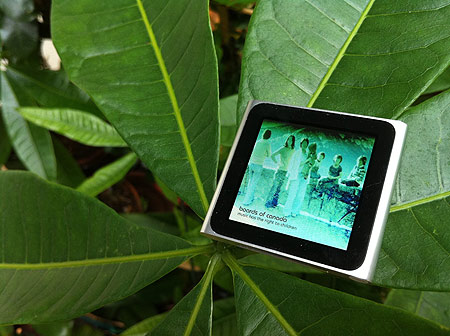
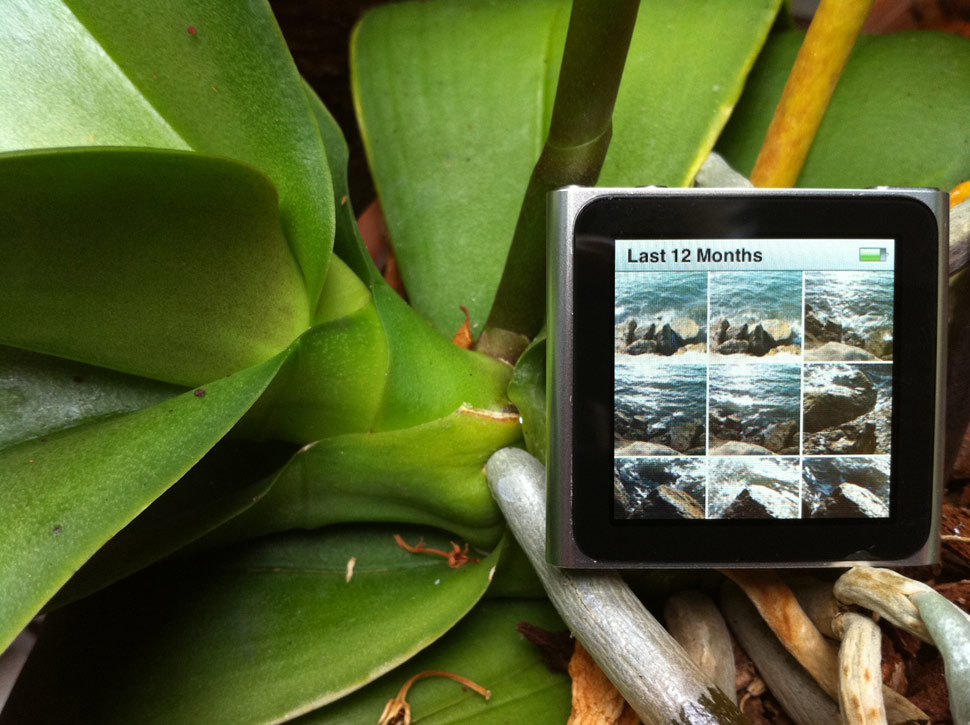
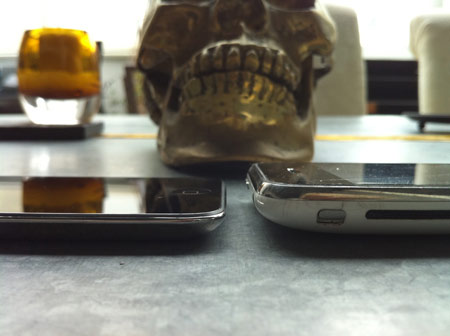
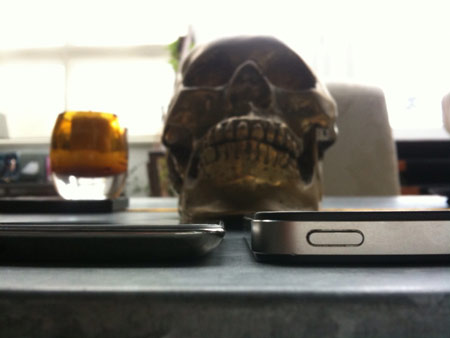

























 As a victim of violence myself, I'm deeply committed to destroying any institution or individual leveraging the sex-power matrix that results in child trafficking, nonconsensual prostitution, domestic violence and other abuses. If I believed that censoring Craigslist would achieve these goals, I'd be the first in line to watch them fall. But from the bottom of my soul and the depths of my intellect, I believe that the current efforts to censor Craigslist's "adult services" achieves the absolute opposite. Rather than helping those who are abused, it fundamentally helps pimps, human traffickers and others who profit off of abusing others.
As a victim of violence myself, I'm deeply committed to destroying any institution or individual leveraging the sex-power matrix that results in child trafficking, nonconsensual prostitution, domestic violence and other abuses. If I believed that censoring Craigslist would achieve these goals, I'd be the first in line to watch them fall. But from the bottom of my soul and the depths of my intellect, I believe that the current efforts to censor Craigslist's "adult services" achieves the absolute opposite. Rather than helping those who are abused, it fundamentally helps pimps, human traffickers and others who profit off of abusing others.





















No comments:
Post a Comment